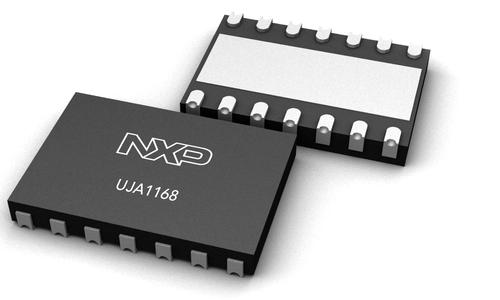NXP announced the release of the industry’s most compact family of CAN System Basis Chips (SBCs) – the UJA116x. Driving new benchmarks in miniaturization, the UJA116x family of SBCs optimizes performance in a broad range of automotive ECU applications, such as steering, cameras and dashboards, where board space is at a premium. Providing robust functionality while saving on bill of materials and system costs, the UJA116x family offers car OEMs and Tier-1 suppliers a complete range of in-vehicle networking solutions, ranging from the basic integrator UJA1161, a self-supplied transceiver, to the UJA1168, a full-featured SBC providing Partial Networking and CAN Flexible Datarate (FD) Passive support.

The next-generation UJA116x family of SBCs integrates common functionalities such as standby or sleep mode CAN transceiver, a 5V voltage regulator, a 5V protected sensor supply and watchdog in a compact HVSON14 package (3.5×5.5 mm), enabling the industry to further reduce the size of the ECU with a robust and cost-effective solution.
In response to industry requirements to drive energy efficiency, the top-of-the-range UJA1168 also supports Partial Networking – a major innovation in power efficiency defined in the industry standard ISO11898-6. In current in-vehicle networking architectures, ECUs are always active and consuming power when the vehicle is in use. CAN Partial Networking changes this model by activating only those ECUs that are functionally required, while the other ECUs remain in a low-power state until needed. This equates to significant savings in power consumption and CO2 emissions.
Providing OEMs with a fully scalable SBC solution, the UJA1168 also supports CAN FD Passive, which means UJA1168-based ECUs can remain inactive during CAN FD communication and become active when there is regular CAN communication.
